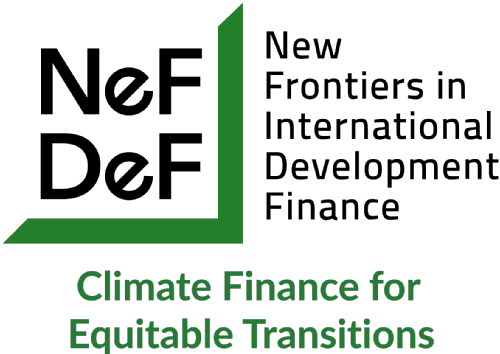Climate Finance for Equitable Transitions

Project overview
The Climate Finance for Equitable Transitions (CLiFT) project is a multi-institutional and multi-stakeholder initiative aimed at exploring the climate finance supply chain within the context of the multilateral climate change regime, international financial architecture and the multi-layered landscape of international economic law.
A central part of international climate negotiations in recent years has been efforts to mobilise private finance and to integrate climate and sustainability risks into financial decision-making by private financial actors, such as banks, insurers, pension funds and asset managers. Private finance is seen as key to generating the leap from 'billions to trillionsLink opens in a new window' in financing climate-related action – such as decarbonisation and emissions reduction (mitigation), resilience to climate impacts (adaptation) and responding to climate-induced natural disasters, such as droughts and floods (loss and damage) – a corollary to similar endeavours in other spheres of sustainable development finance.
The CLiFT project aims to provide key insights into the mechanisms that will be utilised to progress policy and operationalise financial commitments under the private climate finance agenda, including through public-private partnerships (PPPs), ‘green’ and sustainability bonds, loans and other financial products, blended finance platforms and environmental, social and governance (ESG) investments.
A key plank of the project will be to focus on providing support and capacity to scholars and civil society from and in the global south and to amplify the perspectives of communities from the global south.
CLiFT and Climate Finance
Climate Finance Architecture
Project objectives

Knowledge transfer and information dissemination
Translating and disseminating research and policy and operational information on the climate finance and private finance agenda.

Policy advocacy
Engaging in key global policy and legal processes, including at the UNFCCC and key financial decision-making fora such as at the International Monetary Fund (IMF) and G20

Capacity building and training
Developing tools and training for and with global south policymakers and campaigners.

Research
Conducting policy-relevant research on climate finance, the private finance agenda, and its broader legal, regulatory and operational impacts.

